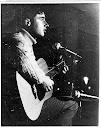@Night Ripper,
This is fun, some people may not find it so, but I do.
Quote:Copying is stealing if you copy something of value without equitable recompense to it's source.
Revised to:
Copying is stealing if you copy something of value without permission and equitable recompense to it's copyright holder.
No one holds the copyright to Greek epics now, however you will find that there are hundreds of books and articles about the Greek epics which are copyrighted more or less with a notice as :
Oedipus Rex | Copyright
These eNotes are copyrighted by eNotes.com, Inc.. No part of this content may be reproduced in any form without the permission of eNotes.©2005 - 2009 Enotes.com Inc. All Rights Reserved
No part of this work covered by the copyright hereon may be reproduced or used in any form or by any means—graphic, electronic, or mechanical, including photocopying, recording, taping, Web distribution or information storage retrieval systems—without the written permission of Enotes.com.
What modern nations have agreed to is a set of rights of ownership for created artworks -writings, songs, poems, dances, movies, plays, musicals, commentaries- which provide protection and control of those works for their creators. Let's not be coy. Artists and writers have demanded that they have protection and control of their own work and they have been given same by the governments under which they (and you) live.
You can argue that the downloading of a song does no harm, but it does. It violates the artist's control of his work. Even if an artist were to say, as many do today, that anyone can copy his song as many times as they like without any payment, that still leaves that artist in
control of his own work. He can say "It's free." You cannot. You don't have the right.
You can argue all you like that such is not fair or just, that more art would be created in an open and costless market or that authentic artists/writers deep in their hearts aren't really creating anything they want anything for, but I have to tell you, since the time of Shakespeare (he had to spend a lot of time chasing down unauthorized versions of his plays during his lifetime. Eh. What? He could have spent that time writing!) the natural right of an artist to control the product of work has been recognized and defended.
==
Funny story - sort of. While in the USAF language school in the late sixties, I used to play music at coffeehouses both on and off base. There were a bunch of us singer/songwriters doing that in Monterey, CA. People played covers and they played their own original songs. Nobody got paid, they got (or didn't get) applause.
I wrote a song called
"Hello there, Strange Hair". People really liked it. It was a dreamy little tune about finding love again after loss. Always a hit with everybody. I probably played that tune in six or seven places around Monterey before getting shipped to San Angelo, Texas.
Fast Forward: I get to Texas, hear about a coffeehouse called "The Whole in the Wall" and mosey on down. Talk to Uncle Gordie the owner about doing a gig.
"We don't pay, but you get free coffee." Very cool.
I get up on the stool to do three or four songs and decide to play:
"Hello there, Strange Hair" and I'm about halfway through the second verse when I notice an odd vibe in the room.
I stop.
"What?" I say.
Someone in the crowd says "You're doing Randy's song."
"Who's Randy?" I ask and get told the story of this guy who had a
bunch of original songs, who had arrived at the Whole about two months before.
"I bet he shipped in from Monterey." I said.
The only thing that saved my reputation was we found out that Randy had also stolen tunes from two other guys, Jon Kantor and Bob Eisenhart, and was passing them off as his own. (I thought Bob was going to smack him with his banjo.) It all turned out good, Randy fessed up to folks and we went on with our lives.
Wait a minute, did I say Randy had stolen those songs? He didn't get paid for playing them, I didn't get paid for playing them. But they were still mine, and Jon's and Bob's.
Here's the thing, all of us played each other's songs, I can probably still do a couple of verses of Jon's "Drifter", but we each had each other's permission (and in some cases, urging) to play the music.
That's the difference. I can't explain it much better, there is something inherent about possessing and controlling what you have made, that allows you to share it or not share it, to sell it or not sell it, to allow anyone for no price to use, copy, reference or even change it OR not to allow anyone for
any price to do anything with it.
Thanks for listening.
Joe(hello there, strange hair and eyes like smoke of autumn mornings)Nation
